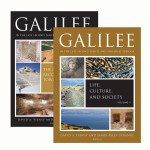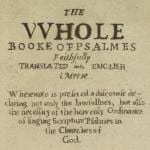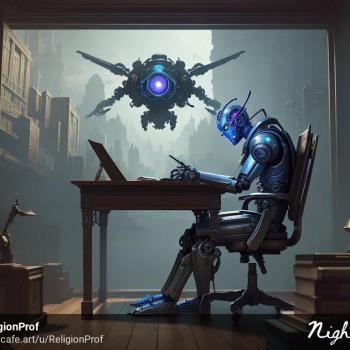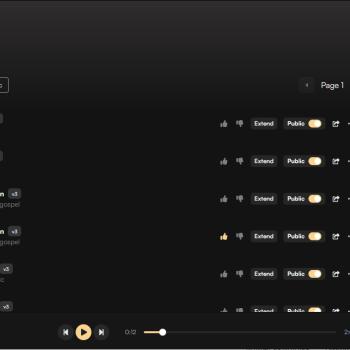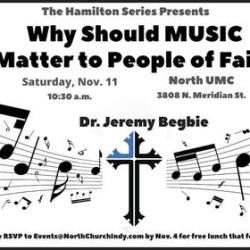I was delighted to have the opportunity to speak yesterday via Zoom with composer Bruce Adolphe about his violin concerto “I Will Not Remain Silent” which is being released on a new album tomorrow. You can read more about the work on the composer’s website and also on the site of the Milken Archive, the organization which put the two of us into contact with one another for this conversation. I mentioned Adolphe’s new album briefly as something “of related interest” when I blogged about the new documentary about Abraham Heschel, Spiritual Audacity. “I Will Not Remain Silent” is inspired by the story of Rabbi Joachim Prinz. The two rabbis, Prinz and Heschel, make for a natural pairing. Both came to the United States and as a result survived the Holocaust while so many of their family and their people did not. Both were inspired by that experience to get involved in the civil rights movement in the United States. Little did I anticipate that my passing mention would open a door for me to have a chance to talk to the composer. It was interesting to talk with him not only about the works on the new album (and the fascinating personal connections not only Adolphe, but also violinist Sharon Roffman for whom the concerto was composed, have with the Prinz family) but more generally about music, creativity, spirituality, and social justice. Adolphe has presented at conferences and written significant contributions related to these topics and their intersection. I got to hear about some forthcoming things as well, including a new expanded edition of The Mind’s Ear: Exercises for Improving the Musical Imagination for Performers, Composers, and Listeners as well as an edited volume he contributed to that Routledge will be publishing in the not too distant future, on the subject of music and human rights.
If you do not regularly listen to music by living composers and yet the name Bruce Adolphe nevertheless seems vaguely familiar to you, he is famous not only as a composer but probably even more so, or at least more widely, for his “Piano Puzzlers” that feature on NPR and elsewhere on public radio.
I confess that until he confirmed that there is an allusion to Isaiah in the title of the violin concerto, I was not sure whether it should be considered one. While Isaiah 62:1 refers to not keeping silent, those who take a stand against injustice and oppression do so and do not always think of the biblical phrase in the process. The phrase is closely associated with Prinz and a speech he gave at the famous March on Washington–so much so that it also gave its name to a documentary about him. When I send my students looking for allusions to the Bible in popular music, the question inevitably comes up “What constitutes an allusion to the Bible?” The word “God” or even “Hallelujah” is not enough in and of itself. It was interesting to learn that, at however many steps removed, these words that were important to Rabbi Prinz resonated with Adolphe in connection with the Bible as he spoke with me about his piece and other topics of mutual interest.
Although I have a particular research and teaching interest in the intersection of the Bible and music, I got the sense that for Bruce Adolphe as for me, music itself, even without words, often makes just as deep and sometimes an even deeper spiritual connection than music that is categorized as sacred music because it sets a sacred text. I hope that yesterday’s chat will not be our only conversation on this topic, as it came about in something of a hurry, and I left it feeling that with more advance warning and forethought we would have had far more to talk about. Even so, the brief conversation that we had was extremely helpful and encouraging to me.
You can listen to the “I Will Not Remain Silent” and other works by Bruce Adolphe on his SoundCloud page, which you’ll undoubtedly enjoy exploring. Please do purchase the album and support the work of the Milken Archive. In addition to the amazing work they do in publishing and promoting Jewish music they also do so much more in terms of recording the stories and perspectives of the composers and artists, which (for me and I am sure for many others) enhances the appreciation of the music. The music speaks for itself, but reading (or hearing) about the inspiration behind it, and the connections that Adolphe has with the family of Rabbi Prinz and the additional connection that emerged in the process of writing and premiering the piece surely adds to your appreciation of those involved and the larger story.
The album also features a cantata with a social justice message that is incredibly timely. I know that my colleague John Perkins at Butler University, who focuses so much of his interest and energy into choral singing as itself a means to peacemaking, will find the piece of interest.
Of related interest, I will share a link to a call for papers on post-Soviet Baltic music, which intersects with my interest in the Bible and music. I feel honored that Latvian composer Peteris Vasks kindly shared some thoughts on this topic that I will include in my book on the Bible and music. Arvo Part will also feature, obviously.
Bob MacDonald blogged about the “Do Not Destroy” Psalms, responding to some of the questions I raised in my own recent blog post on that subject.
Bruce Adolphe’s violin concerto “I Will Not Remain Silent” can also be heard on YouTube:











